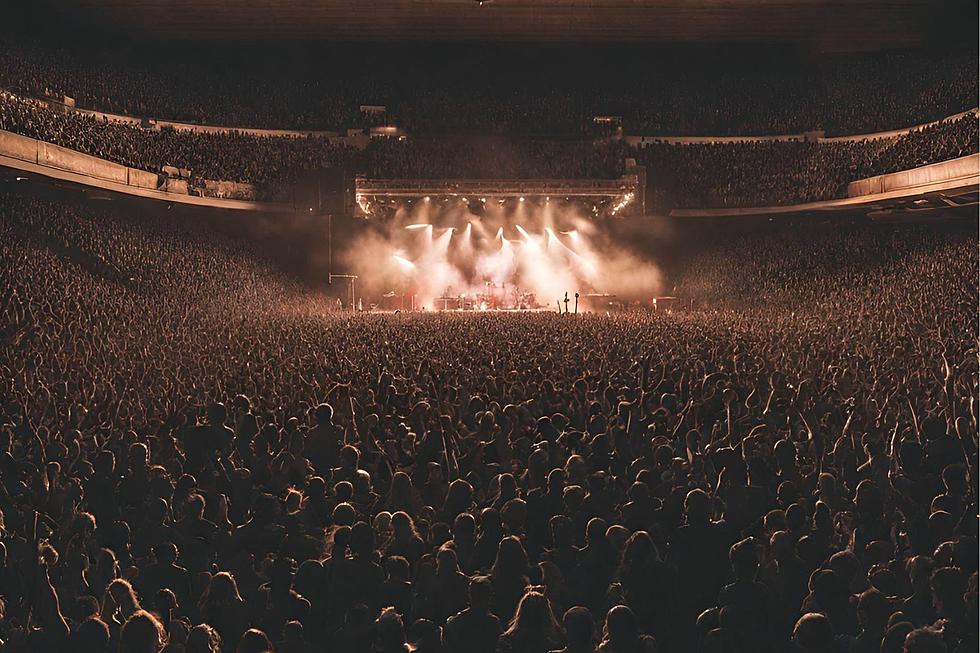
How Robert Plant’s ‘Dreamland’ Sparked a Career Resurgence
Robert Plant admitted that he initially considered recording a covers album because he felt like he was treading water creatively. But Dreamland, which arrived on July 16, 2002, was anything but a stopgap.
In fact, the Grammy-nominated solo album – Plant's first in a decade – pointed to a career resurgence that was as unexpected as it was long coming.
"My ability and vocal cords are all in good shape, but I haven't felt substantially relevant as a lyricist for a long time," Plant bluntly remembered in Led Zeppelin on Led Zeppelin. "They were songs that I've always loved, and I didn't see them as covers, because I was there when they were being written. It was just this period in American music I'd never really got near vocally in my adventures up to now. So, I thought, 'I'm dry as a bone, but these songs are still relevant.'"
In some ways, Dreamland advanced ideas from Plant's time spent working again with former Led Zeppelin collaborator Jimmy Page, between 1994 and 1998. His new band, Strange Sensation, was built around two former members of the Page and Plant touring unit: bassist Charlie Jones and Porl Thompson, co-founding guitarist with the Cure.
Others in this thrillingly varied group had collaborated with Brian Eno, Portishead, Massive Attack and Radiohead. "The musicians," Plant said back then, "make this thing work."
Listen to Robert Plant's 'Last Time I Saw Her'
Then Plant mixed and matched a series of resonate roots and blues songs, creating an offbeat menu featuring the likes of Bob Dylan ("One More Cup of Coffee"), Bukka White ("Funny in My Mind [I Believe I'm Fixin' to Die])", Tim Buckley ("Song to the Siren"), the Youngbloods ("Darkness, Darkness") and Moby Grape ("Skip's Song"). "I wanted to put myself and the musicianship of the people around me into these tunes," Plant said in a press release for Dreamland, "and breathe some new life out of them."
He succeeded. The results – which also included three new songs ("Last Time I Saw Her," "Win My Train Fare Home [If I Ever Get Lucky]" and "Red Dress"), as well as another original as a bonus track on the U.K. and Japanese editions ("Dirt in a Hole") – recalled the impetus, if not the outsized sound, that drove Led Zeppelin to their peak. Dreamland was similarly sourced from a long-ago period, but also felt startlingly fresh and original.
The difference was one of volume and tone, as Plant and a group of largely new collaborators constructed more quietly exotic and utterly spell-binding extrapolations together.
"It really comes from an envy of American music," Plant told Entertainment Weekly in 2002. "America is a multiracial society, and all of these various racial and cultural implants had a fantastic effect on the country’s music. I can’t find anything in English music that actually touches anything half as seductive or relevant. I was always amazed that Herman’s Hermits and Gerry and the Pacemakers, all that rubbish of the so-called British Invasion in the ’60s, had such an effect on people."
Listen to Robert Plant's 'Skip's Song'
Plant was building toward something. He'd leverage this newfound collaborative momentum with Strange Sensation to create 2005's superlative Mighty Rearranger, before subsequently turning his ever-restless focus more completely toward roots music. Wildly successful projects with Alison Krauss and then Band of Joy followed, yet Strange Sensation still had a creative hold on Plant.
He later reworked the lineup, building the Sensational Space Shifters around holdovers Liam "Skin" Tyson, Justin Adams, Billy Fuller and John Baggot to create 2014's well-received Lullaby and ... the Ceaseless Roar.
“There was never an end to my sordid love of big riffs and industrial British hardcore music,” Plant told Marquee in 2013. “There was never an Almost Famous moment where you had problems with guitarists or a singer or someone going to jump off a roof as the golden god. None of that was going on. So, when I went back to Britain [after Band of Joy], I asked if we could get this going again, but this time on a different slant – and that’s what we did. And it’s just been like another far out trip for me.”
Led Zeppelin Solo Albums Ranked
Why Led Zeppelin Won’t Reunite Again


